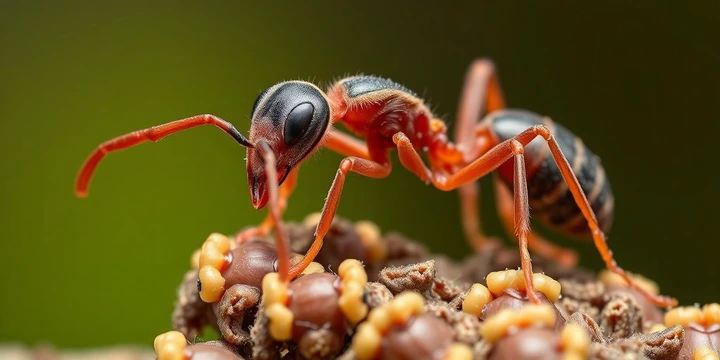Recent Studies Show Ants Can Harbor Grudges

View pictures in App save up to 80% data.
Ants are remarkable creatures that exhibit behaviors often regarded as pre-programmed and instinctual. However, recent research published in Current Biology challenges this long-held notion, unveiling evidence that these tiny insects possess the capacity for experiential learning and memory retention. The study, led by evolutionary biologists from the University of Freiburg, sheds light on ant behavior, particularly their interactions with competitors from neighboring nests. The findings indicate that ants can adjust their responses based on past encounters, demonstrating not only aggression but also a form of memory that influences their social strategies.
The study's experimental framework included exposing ants to competing species from distinct nests, facilitating regulated interactions that examined their behavioral reactions. Throughout these encounters, the ants experienced different levels of aggression from their adversaries. Researchers noted that ants with past experiences involving aggressive rivals were significantly more inclined to react aggressively themselves. This indicates that ants may develop connections between the odors of rival ants and their past experiences, resembling the associative learning processes observed in more complex organisms.
Ants possess a remarkable capability to identify and recall the unique scents of their rivals, which is vital for their social interactions. Every ant colony emits a specific odor, enabling ants to distinguish between their own members and intruders. This ability to recognize scents is instrumental in triggering aggressive reactions, especially towards nearby colonies, which tend to be the main focus of hostility within ant societies. Recent research underscores that an ant's familiarity with the scent of an adversary, particularly one linked to past aggressive interactions, increases the likelihood of initiating aggressive behavior.
Interestingly, the research indicates that aggression varies based on context rather than being a consistent reaction. Ants that faced non-threatening competitors showed markedly reduced aggression when they encountered those same rivals again later on. This finding points to a behavioral hierarchy in which past interactions influence not just immediate reactions but also the ongoing social dynamics between rival colonies. The ability to "bear a grudge" suggests a level of cognitive sophistication that challenges earlier beliefs that insect behavior is purely driven by instinct.
A two-part experimental design was created to explore this intricate behavior. In the initial phase, various groups of ants encountered different scenarios with both known and unknown competitors. Ants that faced off against aggressive rivals showed increased aggression when they later encountered the same opponents. The second phase expanded on this observation by examining the ants' responses to both aggressive and non-aggressive rivals, thereby emphasizing how past experiences shape present behavioral patterns.
A more thorough investigation into the biological and neurological foundations of these behavioral changes is necessary. The